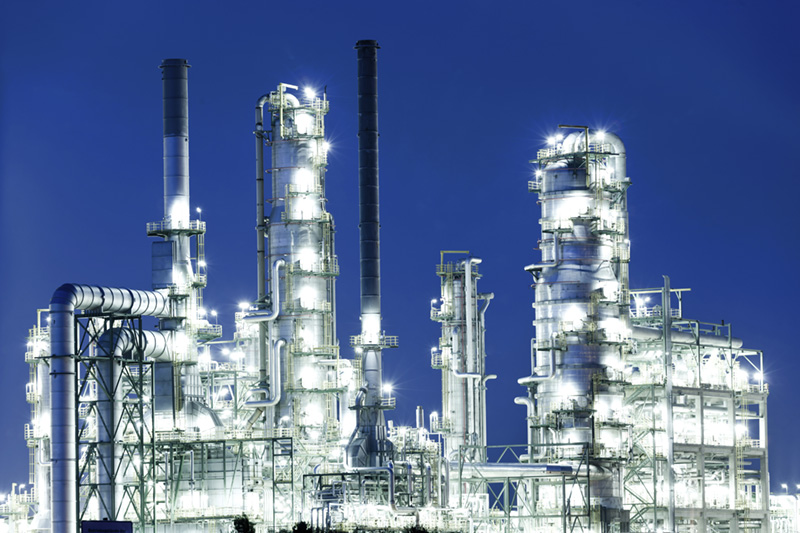

VoltaChem gets off to a great start
01-12-2015
 VoltaChem is an innovation program enabling chemical companies and the electricity sector to make substantial reductions in energy consumption and CO2 emissions. VoltaChem is encouraging businesses to join the VoltaChem Community. The level of interest shown has meant that the program was able to get off to a great start.
VoltaChem is an innovation program enabling chemical companies and the electricity sector to make substantial reductions in energy consumption and CO2 emissions. VoltaChem is encouraging businesses to join the VoltaChem Community. The level of interest shown has meant that the program was able to get off to a great start.
VoltaChem explores, develops, and strengthens technologies and opportunities in the fields of electrification and decarbonization. Within a shared innovation programme, participating businesses deploy renewable energies and resources to create heating, hydrogen, and chemicals for use as the raw materials and products for industry and society at large. Robert de Kler, community manager for VoltaChem believes there is considerable support for such a joint effort. ‘During prior consultations with the industry, 82 per cent of the respondents replied that the issue of electrification offered promising opportunities for their organizations. Over sixty per cent of them expressed an intention to participate in a shared innovation programme such as VoltaChem. In the first four weeks alone, fifteen businesses signed up. This is a positive sign and underlines the need for such a programme. It also raises expectations.”
Sunfire
Anyone taking a glance at other countries will see that such expectations are justified. In Germany the Sunfire company, for example, achieved good results from electrification and decarbonization. The idea of turning sea water into hydrogen and then combining this with carbon dioxide was one conceived of almost thirty years ago. The hydrocarbon compound thus created could then be used, to take one example, as fuel. In 2010 this idea led to the creation of Sunfire, which has since been producing fuels for the transport sector. Since the hydrogen is produced from the sun’s energy, this could be described as a ‘green fuel’. Furthermore, there is a simultaneous reduction in CO2 emissions since the carbon dioxide is captured in the air.
De Kler says, ‘This example demonstrates that often the technology is already available, but that combining it in practical situations is difficult. Sunfire has proved that once you can overcome this hurdle, impressive and immediate results are achievable. The problem, however, is that the chemicals industry and electricity sector often find it difficult to search each other out, even in the Netherlands. And this is where VoltaChem comes to the rescue.’
Open Innovation
VoltaChem builds on the collaboration between TNO and ECN launched at the end of 2014 at the instigation of the Ministry for Economic Affairs and Topsector Chemie. A grant of two million euros was awarded. With the founding of the VoltaChem Community and the launch of the R&D program, two significant milestones have been reached in just one year. ‘Activities are being developed within the Community to boost cooperation and innovation,’ explains De Kler.
A shared innovation program waves the flag for open innovation' by treating each other as equals and sharing knowledge, it is possible to develop multidisciplinary technological solutions'. VoltaChem facilitates this process. ‘In the near future, we will be organizing an electrochemicals workshop, which will be of particular interest to energy-intensive industries such as cement, steel, oil and gas, and power, as well as to the fine chemicals sectors.’ TNO will benefit here from the experiences it has gained from the CATO programme, aimed at bringing together parties focused on enabling the capture and underground storage of CO2 a possibility.
Three Program Lines
VoltaChem has arrived just at the right time, believes De Kler: the supply of renewable energy is seeing healthy growth and prices are falling. ‘This makes it possible to develop new, high-quality products that can be produced with a smaller ecological footprint. It is a win-win situation: companies acquire a competitive edge and at the same time meet stricter environmental standards.’
The VoltaChem programme has three program lines. In Power-2-Heat, electricity is used to generate heat and current, or to make upgrades for a more efficient consumption in chemical processes. Power-2-Hydrogen focuses on the application of electricity for the production of H2 and direct chemical transformations of hydrogen. Lastly, Power-2-Chemicals aims at the direct synthesis of high-quality semi-finished and finished products from sustainable supplies of electricity and raw materials.
Please take a look a look current calls for participation in de field of electrocatalytic production of chemicals and electrochemical production of chemicals via hydrogen. If you wish to participate in VoltaChem, please contact us to discuss the specific benefits for your organization.
Source: TNO
Share this page: